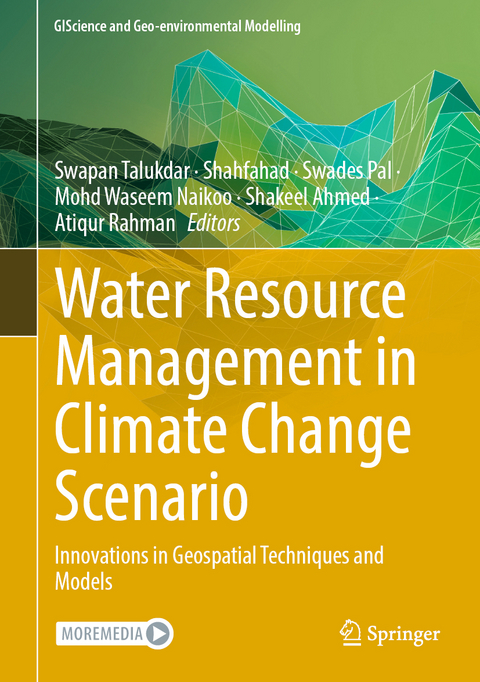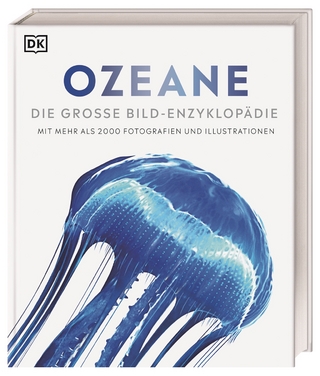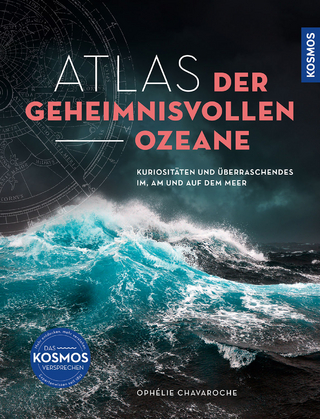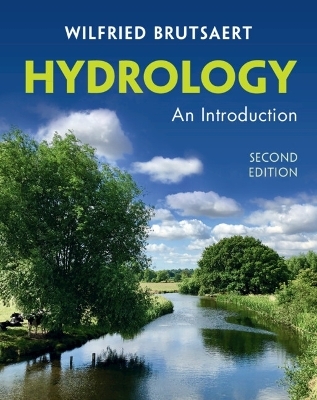
Water Resource Management in Climate Change Scenario
Springer International Publishing (Verlag)
978-3-031-61120-9 (ISBN)
This book seeks to showcase the ongoing challenges of water resource and its management through innovative and cutting-edge approaches (flooding and droughts and their respective impacts; spatial and urban planning; early warning systems; estimation of losses; water resource in the age of global climate change; risk communication; meteorology; integrated analysis; risk mitigation; infrastructures; nature-based management; watershed management; transport; legal assessment; vulnerability analysis; public participation; or case studies). In the face of current global changes, the availability and quality of water resources are under severe threat. Indeed, in all sectors related to water resource management, sustainable development is important for present and future generations. Indeed, multiple problems such as water shortage or flooding, as well as environmental pollution phenomena, are observed. This situation is further exacerbated by poor management practices and unsustainable extraction of water for various consumptive uses. Consequently, many regions around the world, particularly urban areas, are becoming water stressed and conflicts over access to water are becoming ever more common. To overcome the significant challenges fundamental to the management of water resources, cutting-edge knowledge, innovative approaches, and an in-depth understanding of the inherent scientific, economic, social, and environmental issues are imperative. Therefore, water resource management requires a clear understanding of the ongoing challenges and innovative approaches. The authors and editors believe that this book provides huge knowledge and data in the fields of water resource management, earth environmental sciences, humanities, and social sciences, which target a diverse range of readers, such as academics, scientists, students, environmentalists, meteorologists, urban planners, remote sensing, and GIS experts.
Dr. Swapan Talukdar is currently working as UGC-D.S. Kothari Post-Doctoral Fellow in the Department of Geography, Faculty of Natural Sciences, Jamia Millia Islamia, New Delhi. Dr. Talukdar completed his Ph.D. from the Department of Geography, University of Gour Banga, West Bengal, India, in 2020. He served as Junior Research Fellow (JRF) during 2015-17 and Senior Research Fellow (SRF) during 2017-19 in the Department of Geography, University of Gour Banga. He has also completed several short- and long-term courses on remote sensing, machine learning, and AI from different scientific institutes of India such as IITs and NITs. Dr. Talukdar has completed two international projects (as Co-PI) in collaboration with the King Khalid University, Saudi Arabia.
Dr. Shahfahad is currently working as Senior Research Fellow in the Department of Geography, Faculty of Natural Sciences, Jamia Millia Islamia, New Delhi. Dr. Shahfahad completed his graduation in 2015, post-graduation in 2017, and doctorate in 2022 from Department of Geography, Jamia Millia Islamia, New Delhi, India. He has served as Junior Research Fellow (JRF) during 2017-19 and Senior Research Fellow (SRF) during 2019-present in the Department of Geography, Jamia Millia Islamia. He has published one edited book volume and more than 40 scientific research articles in the journals of international repute such as Urban Climate, Journal of Cleaner Production, Journal of Environmental Management, Scientific Reports, Ecological Indicators, Remote Sensing, and Geocarto International. His main areas of research are urban environment, climate change, water resource management, natural hazards, remote sensing, and AI and their applications in environmental management. He has served as Reviewer for several reputed international journals.
Dr. Swades Pal, Professor of Geography, University of Gour Banga, has been working since last 11 years. His research interest is on river and wetland hydrology and ecology. Focusing on these issues, he has guided ten Ph.D. research scholars and published more than 75 research articles from different peer-reviewed journals of international repute such as Journal of Cleaner Production, Journal of Environmental Management, Environmental Pollution, Science of the Total Environment, Ecological Indicators, Sustainable Cities and Society, etc. Dr. Pal was featured in the top 2% Global Elite Scientists in the study by University of Stanford, USA, published in the journal PLOS Biology during 2020, 2021, and 2022.
Dr. Mohd Waseem Naikoo is presently working as Senior Research Fellow in the Department of Geography, Faculty of Natural Sciences, Jamia Millia Islamia, New Delhi. Dr. Naikoo completed his graduation in 2014, post-graduation in 2016, and doctorate in 2022 from Department of Geography, Jamia Millia Islamia, New Delhi, India. He has served as Junior Research Fellow (JRF) during 2017-19 and Senior Research Fellow (SRF) during 2019-present in the Department of Geography, Jamia Millia Islamia. He has published more than 25 scientific research articles in the journals of international repute such as Journal of Environmental Management, Applied Water Sciences, Journal of Cleaner Production, Urban Climate, Environmental Science and Pollution Research, Remote Sensing, and Geocarto International. His main areas of research are urban expansion and environment, water resource management, natural hazards, remote sensing, and AI and their applications in environmental management.
Prof. Shakeel Ahmed is with Maulana Azad National Urdu University (MANUU) as a consultant to the School of Sciences. Before joining MANUU, he has been working as Emeritus Scientist of CSIR and Emeritus Professor of AcSIR both at NGRI, Hyderabad. He is basically Earth Scientist and completed his M.Sc. Tech. from BHU, Varanasi, and Ph.D. from the Paris School of Mines, France. He worked on groundwater hydrology throughout his scientific career
Recent Trends in Application of Geospatial Technology and AI for Water Resource Monitoring and Management.- Recent Trends in Water Quality Monitoring: Co-dispersions, Sources, and Probabilistic Health Risk Assessment.- Monitoring Spatial Pattern of Floods for Developing Flood Management Strategies and Better Community Resilience.- Monitoring Flood Plain Wetland Degradation for Restoration and Conservation.- Spatial Dynamics of the Urban Wetlands and its Influence on Urban Environment and Ecosystem Services.- Monitoring Wetland Degradation by Integrating Machine Learning and Remote Sensing Techniques.- Changing Pattern of River Flooding Under Climate Change Scenario: A Geospatial Analysis of Rainfall-discharge Trends and Controlling factors.- Groundwater Potential Mapping Using Remote Sensing Techniques Coupled with Deep Learning and Stacking Framework.- Application of Deep Learning Algorithms for Flood Susceptibility Mapping in Data-scarce Region.- Monitoring Glacier Changes in the south-western Himalayas using Geospatial and Geostatistical Approach.- Integration of Optical and Microwave Remote Sensing Datasets for Surface Water Mapping.- Prediction of Nitrate Contamination in Lake Water at Pixel-Scale using Deep Learning Models.- Monitoring River Water Quality and Proposing Management Strategies by Integrating Geospatial Techniques and Machine Learning.- Comparison of Performance of Machine Learning Techniques in Prediction of Groundwater Quality.- Lake Water Eutrophication Monitoring and Proposing Management Strategies for Water Quality Treatment.- Analyzing Sources of Heavy Metal Pollution in Drinking Water and Identifying Water Treatment Plans using Geospatial Techniques and AI.- Integration of Machine Learning Models with Game Theory for Understanding Water Induced Soil Erosion in Guwahati Urban Watershed.- Proposing a New Framework for Urban Blue Space Mapping by Coupling Image Fusion Techniques and AI.- Quantification of Surface Water Contamination by Integrating Geospatial and Geostatistical Approach.- Application of AI and Big Data for the Prediction of Glacier Melting.
| Erscheinungsdatum | 09.07.2024 |
|---|---|
| Reihe/Serie | GIScience and Geo-environmental Modelling |
| Zusatzinfo | XIX, 285 p. 132 illus., 129 illus. in color. |
| Verlagsort | Cham |
| Sprache | englisch |
| Maße | 178 x 254 mm |
| Themenwelt | Naturwissenschaften ► Geowissenschaften ► Hydrologie / Ozeanografie |
| Schlagworte | Flood Plain Inundation • Nature-based Solutions & Artificial Intelligence • Surface and Sub-surface Water Vulnerability • Water Resource Mapping and Modeling • Water Toxicology and Treatment |
| ISBN-10 | 3-031-61120-9 / 3031611209 |
| ISBN-13 | 978-3-031-61120-9 / 9783031611209 |
| Zustand | Neuware |
| Haben Sie eine Frage zum Produkt? |
aus dem Bereich


